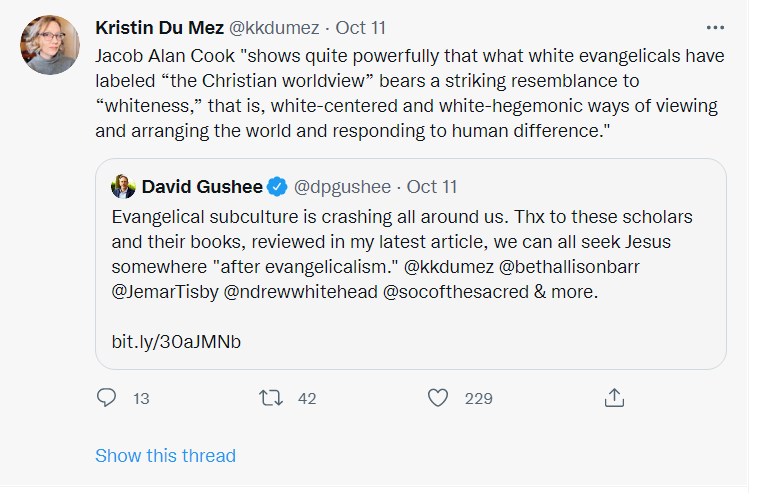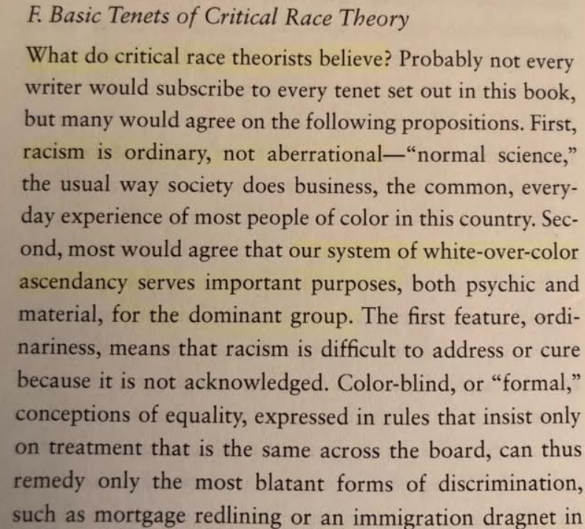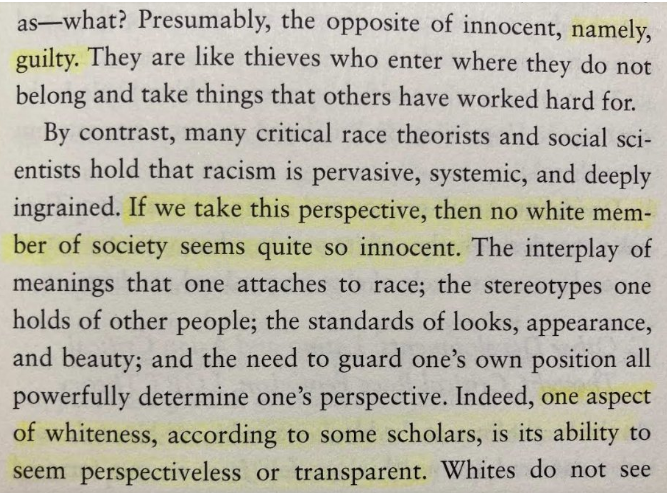
David Gushee was the first to frame the work of Du Mez, Barr, Tisby, Butler, Jones, Whitehead, and Perry as an evangelical "deconstruction project."
Here's a thread of my detailed reviews of their individual books.
1/
Here's a thread of my detailed reviews of their individual books.
1/

Jesus and John Wayne: Du Mez offers "A Needed Critique" but "no exegesis of key biblical passages about gender, power, or authority. Indeed, the book offers little if any theological reflection at all on these issues." 2/
shenviapologetics.com/cowboy-christi…
shenviapologetics.com/cowboy-christi…
Barr's Making of Biblical Womanhood: we should "ask whether our vision of female participation in the mission of the church has been shaped more by culture than by Scripture" but her "reasoning amounts to a heads-I-win-tails-you-lose argument." 3/
shenviapologetics.com/unmaking-the-p…
shenviapologetics.com/unmaking-the-p…
Tisby's Color of Compromise is "an important read for anyone concerned with racial justice" that "should provoke introspection and lament" but a "mixed bag" of specific proposals that make controversial assumptions about justice and reconciliation. 4/
shenviapologetics.com/compromised-a-…
shenviapologetics.com/compromised-a-…
Tisby's How to Fight Racism contains some suggestions that are "good and laudable", but the book is "plagued by imprecision, ambiguity, and faulty assumptions."
5/
shenviapologetics.com/a-house-divide…
5/
shenviapologetics.com/a-house-divide…
Butler's White Evangelical Racism is "a scathing denunciation of evangelicalism" that "contains no footnotes, endnotes, or in-text citations of any kind" and adopts "a deeply cynical approach to the motives of others" that is "unsustainable." 6/
shenviapologetics.com/religion-as-ra…
shenviapologetics.com/religion-as-ra…
Jones' White Too Long provides sickening but accurate examples of "racial terrorism." But he has adopted an interpretive lens that sees even a Black prisoner's Christian conversion testimony, as "a complex choreography of white supremacy" 7/
shenviapologetics.com/a-semi-review-…
shenviapologetics.com/a-semi-review-…
Whitehead and Perry's Taking America Back for God recognizes that there exists a "dangerous form of religious belief which syncretizes patriotism with Christianity" but "fails to grapple with even basic questions of political theology" 8/
shenviapologetics.com/god-and-countr…
shenviapologetics.com/god-and-countr…
I summarized the approach taken by these books in my article "Sociology as Theology: The Deconstruction of Power in (Post)Evangelical Scholarship" concluding evangelicals should "concede criticism [where] valid" but reject their overarching framework. 9/
cbmw.org/2021/11/21/soc…
cbmw.org/2021/11/21/soc…
Lastly, many claimed my Eikon article was "ignoring criticism" in an effort to protect "masculinity/whiteness" (I'm not white). I urge people making this claim to read these reviews which consistently acknowledge valid critique while rejecting bad assumptions/methodologies. 10/10
• • •
Missing some Tweet in this thread? You can try to
force a refresh














